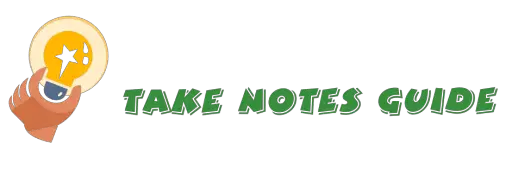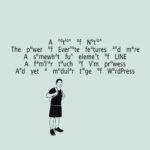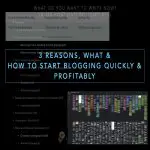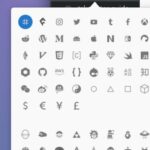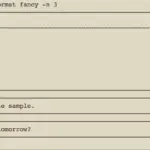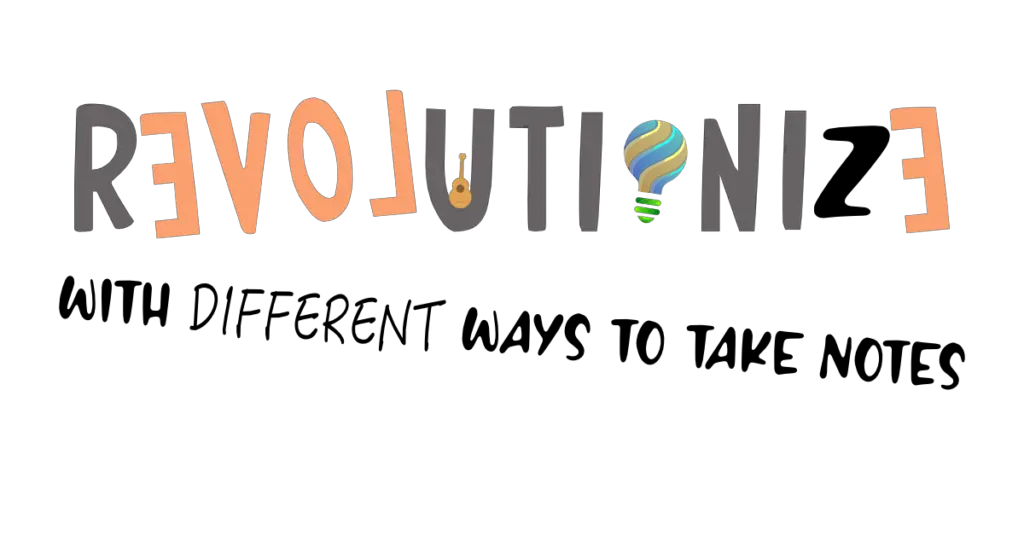
Note-taking can be fun and creative. And the possibilities are numerous. Bear in mind there are many different methodologies – various approaches, methods or techniques to note-taking, possibly limited only by our own imagination. Below are a mixture of methodologies and other ways for picking, but these will mainly not be the usual decades-old, traditional note-taking systems popular to some, nor am I keen on sharing images and tips of colorfully highlighted notes in this post. I implore you to open up your mind, and give note-taking a breath of new, fresh air; Even if you are used to an old technique, it does not mean you cannot learn a new trick or two to keep improving.

What are the different ways to take notes?
- Start with a blank page – 4 ways to take notes
- Learning from a speaker and discussions – Studying, meeting and general note-taking
- Contemplation of a topic – General note-taking
- Formulate and ask specific questions to self and others – Method of prompt for note-taking
- Experiments and logbooks – Research factual notes and logs
- Personal experiences – Diary and journals with inspirational and informative notes
- Organized – Regardless of the purpose, keep notes in order
- With aids and tools – As a guideline, inspiration, memory, and more. Please read below.
Aids and tools:
- Templates – traditional and modern
- Songs – as inspiration
- Books – notes from books
- Appropriate objects – including photographs and for mind palace
- Notebooks – physical ordinary and modern write-and-scan notebooks
- Notes and comments in programming codes
- Modern simplified formatting standard: Markdown, suitable for notes and short text
- Modern notes apps – Evernote, Typora, StackEdit, Google Keep, Pure Writer
Another perspective of different ways to take notes:
- Text – written & typed (and email notes)
- Visual – painting, drawings, and camera
- Audio – vocal recordings & voice-to-text
- Video – screen recordings & video creation
These are different ways to take notes, however, the elements for each note-taking purpose may vary. Furthermore, some people will prefer one way over another so it is up to you to discover what works best for yourself. Read on to find out which way may appeal to you.
Start with a blank page
I know taking notes from a blank page is hardly revolutionary, but I believe it is how we perceive and take notes that make it. Contrary to some conventional note-taking systems, I recommend starting from a clean slate first, your own template or one that makes good sense to you, in that order.
Why? A blank page encourages creativity, freedom of thoughts, and spaces to explore. If you have a specific purpose and came out with your own template, feel free to use it and save time. Otherwise, any logical template that applies to your needs should be a good fit. Please feel free to explore other example templates on Takenotesguide.
Ways to take text notes for a blank page
- Just start typing away anything that comes to mind first for momentum, may be suitable for certain purposes only (overcoming writer or note-taker’s block)
- Write any meaningful notes in top-down chronological order of learning
- Know to look out for certain keywords and ideas and put them into a structure you have in mind
- Start noting down with the most important points at the top, and then elaborate on them under each sub-headings.
Exercise:
- Take a few minutes to test out which way you feel good about from a rating of 1 to 10. Arrange in order of preference.
- Next, experiment on your top 2 ways, can you combine them? Can you evolve with them? Can you integrate other note-taking tips?
- Remember well or note down the records of your experiences in these little experiments, who knows they may benefit you later more than you can imagine.
Learning from a speaker and discussions
This is probably the most common conception of taking notes, where we just listen for key points and take notes. The point is to understand well what the speaker spoke for key ideas, not long sentences or transcribe. Personally, I think there is no shortcut to paying close attention to listening, and we can only practice by putting our heart into focusing our concentration more often, no less. Any engagement activity with understanding should be beneficial. Concentration, regardless of hearing or otherwise, is an invaluable quality that is essential for taking notes on the meeting, studying, and so much more. Put aside all distractions so you can focus on listening to someone, and then take notes of significant matters.
Depending on the situation, take notes also on the person and how he or she speaks. Not only for note-taking, but practice to listen intently also for inconsistencies, what he/she is NOT saying (reading unbiased reviews may reveal more), and the true intentions of the speaker. Your notes will also prove to be valuable when you need to refer back to see if the speaker is keeping up to their promises and for any loopholes. This can be important because some people can be oblivious to contradictions or choose to be so even when advised against repeatedly. Any objective individual should exercise caution and keep steadfast on the path of truth with equanimity regardless of adversities. Notes can keep priorities and goals in check in the face of insanity, but we have to review the notes (which may act as proof in certain situations such as audio and video notes) we have taken with an impartial mind, or at least remember with certainty what was said and make the right decisions based upon facts. How To Take Notes For A Meeting may offer more related information.
Exercise:
- Select any suitable audiobook that interest you e.g. Amazon audiobooks or Librivox, and decide on a clear purpose and what kind of notes you have in mind.
- Listen to five to ten minutes before pausing to write down notes you can remember, this way you train your memory as well, and assess mentally further on if those points are worth noting down.
- Complete about 30 minutes of listening, pause to reflect upon the ideas noted. Are these good and useful ideas that contribute to later developments? Could you have done better? Are these what you expected initially? Are you on track or distracted?
- Continue or repeat with another audiobook.
Contemplation of a topic
This is perhaps the most powerful and useful way for note-taking, at least to me. Understanding rises from contemplation, and along with stronger associations for memory. We naturally take better notes based on our increased understanding and realizations of any topic. Again, we can only exercise diligence in frequent contemplation of a topic to gain an upper hand. Either we remind ourselves to review or set an external reminder to discipline ourselves. You may engage in an enjoyable hobby and return to contemplation several times in the span of a day. Contemplation works because you are thinking of possibilities or figuring how things may work, and you may come across new ideas you never had or realizations.
If we have a difficult obstacle, we may overcome it by breaking it into smaller pieces and contemplate much upon how to solve each part at a time; One would imagine it is just a matter of time before he cracks the code under normal circumstances. In essence, make sense of all parts of the topic.
Please visit Resources that promotes critical and logical thinking.
Formulate and ask specific questions to self and others
Be a proactive thinker with formulating your own questions! The kind of questions may vary for every unique topic, whilst some may be the same. However, when you get used to generating relevant and related questions, you will quickly apply it over and again with more finesse.
For example, you may start with asking multiple questions on how, what, why, when, who, how-to and what-if, and take list notes for each answer. One who considered all or more possible angles correctly can hardly be blamed for incompetence.
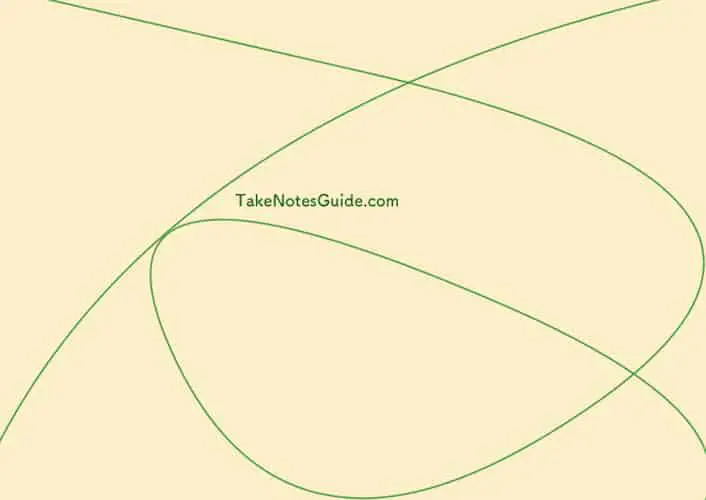
Experiments and log books
There are plenty of notes on figures, tables, references, and information pertaining to research experiments to be recorded. In fact, detailed information is crucial to a good research paper, even including how data is recorded and timestamps of who & what was added. Please also read How To Take Notes For Research Paper. The other instrument common for recording notes is logbooks, such as a captains’ log book for a ship. Log books can reveal what happened on board a vessel even decades after, and serve as valuable lessons to future aspirants.
Personal experiences
We may note down in personal diary and journal of inspirational and informative nature. This can help to cultivate a habit and improve our note-taking skills over time. In Evernote, one may also easily add a current timestamp with CMD+Shift+Alt+D i.e. 1:32 AM, or add the current date to note with CMD+Shift+D i.e. Wednesday, 6 March 2019.
Taking notes with personal experiences can be a powerful way to record information. For example, when we relate memorable experiences with study or work notes, we tend to remember them more vividly and thus less forgettable. This way of taking notes can be quite simply just jotting down what happened in the course of your daily life that is interesting, fun, or worth mentioning, and include what you learned from studying and discussions, in chronological order like telling the best parts of a story.
Organized
This may sound simplistic, but there are even branches of studies dedicated to organizing information such as the library catalog system and mind palace. Moreover, in the modern age of information expansion, learning the way to organize our notes is becoming more critical for reference and efficiencies. While we may not need a complex organizational system, we certainly can deploy simple solutions with search capability e.g. notebooks, tags, or a Gingkoapp note structure. Personally, I would recommend keeping an organized list of shortcut notes for frequent access like in Evernote.
Aids And Tools
Templates
There are modern and traditional templates. Please feel free to explore the examples here, some with templates.
Songs
I would think this is subjective to individuals. Some prefer to listen to background music and music preferences vary for individuals. Furthermore, an individual may concentrate and take notes better with music at certain times or situations while not at others. The point is there are quite some variables in this consideration. And perhaps the best way is to test out how well it works for you. For example, which music and at what volume is just right for you to focus and take notes? When is the best time? Any particular environment or situation? Will a radio station or curated internet music channels e.g. RadioTunes do? In short, please observe and discover how music affects and may help you concentrate.
Books
Evidently, taking notes from books, including textbooks can be common among students or adults e.g. Fictional works such as novels; Please read How To Take Notes On A Novel. Perhaps posts on TakeNotesGuide can be compiled into a book or Kindle ebook in the hope of helping someone take notes. There are also Mind Palace books that may help you in exams and beyond under Resources.
Appropriate objects
If a note template can guide you to write notes, why not an object of interest then? A template may link questions with notes, perhaps we can associate the properties of an appropriate object with notes then.
For example a table lamp with computer science:
- The bulb is like the server transmitting information upon requests
- The shade is like a firewall or bottleneck of bandwidth speed
- Our eyes are like a computer or device component that receives the data
- The different types of light bulbs (warm daylight, cool daylight, LED, neon, blacklight, colors) are like the different formats and programming languages that can be transmitted and understood by corresponding computers
- An “Eureka” light-bulb moment is like realisations gained from information shared in a large global cluster of computers, aka the internet
As you can see, we use analogies to easier understand and remember information with associations, particularly with objects of familiarity. You may begin with a single object and then to objects tour around your own room as in the use of mind palace. If you are fond and a heavy user of such a technique, then the next level up could be the use of more detailed, complex or objects dear to our hearts; Photographs and even maps can be used as well.
Notebooks
For physical notebooks, there are ordinary and modern write-and-scan ones such as Rocketbook listed in Resources. You may browse any number of paper notebooks from Amazon but honestly, I do not use them on a regular basis. If you do, please consider scanning them with Notebloc or Scannable as mentioned in Top 17 Ways How To Take Notes For Sharing.
Notes and comments in programming codes
To learn more and how to comment and take notes in codes, please refer to A Basic Good Coding Practise: How To Comment Codes And Take Notes.
Modern simplified formatting standard: Markdown
Markdown is suitable for formatting notes and short text. For those who wish to learn how to use markdown for notes, documents, and editors evaluated, please read Markdown Editors For Note-taking. If you like to use mind maps for taking notes, please head over to How To Use Atom To Take Notes.
Modern notes apps
- Evernote is perhaps the most powerful and versatile note app on the market.
- Typora, StackEdit, and Visual Studio Code (code editor) can support mathematics and diagrams. For example Typora (a beautiful markdown editor) example.
- Google Keep is a simple yet reliable note-taking app that supports labels like tags.
- Pure Writer, a Google Play app, can be a simple alternative to Evernote android app designed for not losing content with a nice interface.
Text, visual, audio, and video notes
Evernote can take text notes (and save emails as notes), visual notes by scanning or camera, and audio notes with a microphone for vocal recordings or voice-to-text (read more in Beginner’s Guide To Taking Notes On Computer).
DU Recorder for screen recordings, an example in How To Take Notes On YouTube Video (4 Tools Evaluated), and Quik/Lumen5 for video creation, an example in Top 17 Ways How To Take Notes For Sharing.
Conclusion
As you can read here, there are many ways you can deploy to take notes (even from a blank page), and exponentially with the combinations and improvisations of creativity, and hence the word in the title: Revolutionize.
I truly hope you are inspired to take notes with a renewed vigor and purpose, perhaps with one or some ways explored here. And I thank you, the reader for taking this journey of words in this post with me.
Please show kindness to someone today and every single day, and good luck!
Related Questions
Are there more methodologies to note-taking?
I hope you find value in these posts:
- How To Take Notes For Research Paper
- Best, Good, And Bad Note-Taking Habits
- How To Take Notes On A Novel
- How To Take Notes For Computer Science
- How To Take Notes For An Essay
Please note I use the terms methodology, method, and technique interchangeably.
Unimpressed with what can be done on a blank page?
Please consider this then: One might think a simple spin toy is just a boring toy, until people start getting creative with it. I hope you find inspiration to revolutionise!
How to start drawing (as visual notes)?
Please refer to Transparent Grids under Resources.
